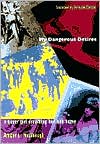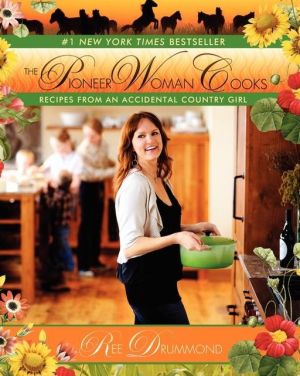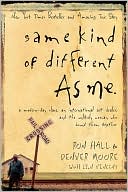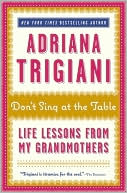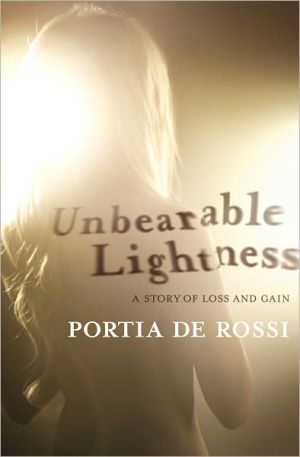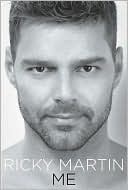My Dangerous Desires: A Queer Girl Dreaming Her Way Home
Amber L. Hollibaugh is a lesbian sex radical, ex-hooker, incest survivor, gypsy child, poor-white-trash, high femme dyke. She is also an award-winning filmmaker, feminist, Left political organizer, public speaker, and journalist. My Dangerous Desires presents over twenty years of Hollibaugh’s writing, an introduction written especially for this book, and five new essays including “A Queer Girl Dreaming Her Way Home,” “My Dangerous Desires,” and “Sexuality, Labor, and the New Trade...
Search in google:
Writings of a pioneering femme lesbian sex radical. Clancy Nolan, Independent Weekly (Durham, NC) - Clancy Nolan [Hollibaugh] reaches across lines of race, class, and sexual expression to advocate for a messier, all-inclusinve LGBT movement. In her writing as well is a brave refusal to shed any of her identities, to hide any of her choices, no matter how complex or contradictory they may seem.
\ \ \ \ \ Chapter One\ \ \ A Queer Girl\ Dreaming Her Way Home\ \ \ I have lived on the wrong side of sex since birth. This is both who I am and who I was meant to be, though it isn't all there is. I grew up a mixed-race, white-trash girl in a country that considered me dangerous, corrupt, fascinating, exotic. I responded to the challenge by becoming that alarming, hazardous, sexually disruptive woman. Most often this happened without a plan or a design.\ My coming out as a high femme lesbian only added to the fears, lies, and misconceptions of those deeper, older experiences: of being born and marked inherently other because of the people who birthed me. This deviance, perversion, this otherness is woven into the fabric of my earliest experiences and memories, piercing the very sides of the dresser drawer my parents used for a crib.\ We were motorcycle-riding poor-white (Irish) and dark-skinned (Romany) Gypsy trash. I was given birth by these particular men and women, people with their own complicated histories and deeply compromised choices. They are who I grew up loving. And this life, my life, has led me back to them again and again in order to confront and ultimately accept myself. I have needed to remember them, see them before me, in order to comprehend the world. They were not my choice, but they were my survival, what I required to endure, and to create a worldview layered with my fusion of sex and color and class.\ When I look at the essays in this book, it seems to me that I have been building their very sentencesfor a long time, placing them like marks on the ground to utilize again some day for myself, so that I could travel back to the place I fled in fierce, hopeless love, dread, and nameless grief so many years before ... back to my earlier self, to the towns and fields I grew up in, the memories and the nightmares I could tell no one, back to the smell of the places I hid to survive the violence in my family, back, to the child, staring at the skeleton of a future with no eyes in its sockets. No matter how rough, the terrain of my history is what I have always used to invent and understand my dreams, my sexuality, and my need to go home.\ Going back isn't what started me writing, though; anger was—anger and loneliness. I was homesick for a place and a people I'd thought I hated—and angry at how my own uneven teeth, exhausted body, and physical scars still betrayed my origins. I was increasingly tired and furious at being in a middle-class world peopled with none of the bitter brilliance, powerful resilience, and savage survivors' humor I had grown up knowing and which I still relied upon in myself to keep my own life recognizable. I was tired of whiny movement women who seemed to want only what they thought the men of their class already possessed—rather than being amazed at the very privilege of their assumption and their "wanting" in the first place. Tired doesn't really capture it. I was sick at heart over a feminism and a Left driven by a deeply ungenerous disregard for difference. People in both movements had few skills to manage working with anyone whose life history fell outside a certain, very particular kind of whiteness, an imperious class confidence.\ I was also scared. All the stories I could gather and spin at this rally or that conference seemed to be sending me further and further away from the person I knew myself to be. Where was I going in this new world, in the attempt to run away from the one I had fought so hard to escape? What exactly was I piloting myself into? This was a world that I had hungered for with such desperation, a world of books and language and bodies that didn't ache at the end of the day and certainly not at the beginning. I dreamed of a world away from the fear and desperation that had governed my own childhood. But where was this new life taking me? What kind of person was I becoming? I had trouble, sometimes, even recognizing myself. Whose language was now moving through my lips, whose images, whose truths and lies? Even the stories that had once seemed my own, as I repeated them in meetings and consciousness-raising groups, now seemed overdone in my ears, exaggerated in untruthful ways. The people I drew didn't smell like the people I knew—those human beings who were really the spine and flesh of my history. They were too perfectly tragic, too comically downtrodden, too pathetic. I knew my mother would be disgusted. She would also be ashamed.\ There was some terrible lying going on here. I existed in a circumstance where the only language for my own life was one of grave silence and profound omission. My own shame and confusion about who I was and where I'd come from kept me from thinking I could ever write or speak in public, could ever create a life of integrity for myself—one of the mind and the spirit, a life I could respect. I had never met another me in any of the movements I was a part of. This was, looking back, not because there weren't many of us there but because our experiences and histories were assumed to be nonexistent in those rooms and lecture halls and at those demonstrations. They weren't called for, weren't valued, weren't understood. Because of that I was alone in any room I entered, and I had no way to find others with corresponding lives full of the stories and laughter, the heat and undercurrents that propelled my own class, sex, and race history forward.\ I don't mean this literally. I didn't need to meet up with another woman whose life was a cookie-cutter version of my own. Her language didn't have to roll from her mouth with the same phrases as my aunts and cousins and nieces, her poverty or pleasure need not trace precisely the same shapes as my own. What I longed to hear again was a culture of similar expectations and longings, of lives rooted in familiar desires and in the regular stories of simply desperate needs, understated and quite ordinary. I wanted a commonality of the skin and flesh in other women and men who had survived these commonplace terrors of existence and who still had a fierce desire to never forget. Who really understood that this not forgetting was a necessity, the core of their own survival, rather than just the bitter price paid.\ I longed for a movement of other women who would still smell of sex captured in the back of a '56 Chevy or a Harley and a field. Who had an uncompromising taste for lovers with the power to map and navigate their own ferocious desires for going under in a female erotic context. I wanted a narrative with the texture of its sex drawn through the hands and mouth of a woman who would take your body under water with your arms held back at your sides until you gasped for breath, and still she wouldn't let you go. I wanted somebody here to howl with the pleasure and the terror of the whole damned thing. I began to realize that I was hungry for sound in a class- and color-silent world. I operated alone here, hiding and remembering, and I had become afraid in a new way now about my own geography of desire and the curves and edges of my own sexual, racial, and economic history.\ But the delinquencies of my upbringing and my desires only confirmed a deeper chronology of disturbing questions in which the ache for another woman's mouth was simply the most obvious crime I committed. My history didn't seem to fit together with the dreams I harbored and the movements I had joined. No one had to say it out loud. I knew it more clearly than anyone around me. Popular culture, casual remarks about "poor white trash" or about being "gypped," television humor and the empty bookshelves of the trailers and little houses I grew up in, all spoke it more expressively than any single assertion.\ It's hard for me to remember those days before I had the hope of the Left—and then of women, of sisters, and beyond that of differently gendered women, a kind of third sex, who desired their own kind. My hope was for a revolution so complete that no one would ever have to face my life choices again. That was the context for my early activism, though I really didn't understand it as clearly then. It was the civil rights movement, the Left, and then women's liberation that broke the repetitive pattern of sameness, of small worlds and smaller hopes, in which I grew up and to which I seemed destined. How to tell people who have never felt that desperation what it meant to discover the world of ideas and imagination that is the basis of revolution. To rip yourself, literally, from the flat, minute range of alternatives poverty presents you with from birth and explode into revolution—grand, total, world transformation for yourself and for all the people you love, people you have had to leave behind in that trailer park in order to escape their fate.\ Before the movement, I could only try to slip my dreams inside a wedding gown or onto a Harley Davidson. By the time I was eleven, I was nearly six feet tall, and my body suggested a sexuality I had yet to embrace. I had become a trophy girl at the Saturday night motorcycle track we went to each week. My father raced his bike or worked on the pit crews of his other male friends. At the end of a series of races the winners would be called onto the field for their prize. I would pull my dress tightly around my hips and ride that big Hog out onto the center field. Leaving the bike, I would pick up every winner's trophy as his name was called, bringing each man his prize. As they accepted, each man in turn would pull my body into his across the tank of his bike, moving his mouth over mine. I dismissed their kisses. But I loved the feel of surrender in a public space and the crowd's approval. To be publicly claimed and taken—this was a perilous sexual energy which I could play with in that ridiculous spotlight. I would never be a prom queen or a good girl, but this offered me a kind of irresistible female claim to a distinguishing, edgy charisma and ironic magnetism, gave me an identity in the world. It was what I had. And I would learn, quickly, that every identity has its price.\ By the time I was twelve, I was considered a whore and treated as one. Each boy who went out with me bragged about the ease of his sexual conquest on our first date—in order to match the lies of whatever boy had gone before him. In response, I began to date older men. Before my thirteenth birthday I began to see a thirty-three-year-old motorcycle mechanic, Hack Hackley, who raced bikes and was one of my father's best friends. I had my first full-time summer job, getting a pair of roller skates as part of my official uniform so I could start waitressing at the nearby drive-in hamburger stand.\ Most everything I craved then was fiction and excitement. I hungered for men with the same indiscriminate longing for escape and improbable meaning I attached to all my fantasies. The endless romance I sought, the life I wanted, was epic and filmy, not what it really was: a few strung-together drive-in movie moments in the back seat of some guy's car. I had measureless Technicolor illusions, gaudy and without focus, dreams of ecstasy, of seamless joy and perfect escape, of having a beauty I didn't possess and a power I couldn't command.\ I read Harlequin romances and Love comics in piles, devoured all I found. I wouldn't have known a "good" book if it had materialized next to my bed—and I probably wouldn't have been interested. Those novels fit my urgency and my terror of the real world perfectly. Even when it began to dawn on me that I wanted women, these books stayed central to my imagination. I merely adjusted their gender. Or I didn't notice. It wasn't the sex of the men in these books which compelled me; it was the man's total power to define and control the world around him. It didn't seem remotely possible for a woman like myself to play that role, to determine or control the world. These were gendered fables of class and power, and I was completely willing to believe in love as my answer. I also accepted the feminine angles of romance, the stance of ultimate receptivity. At this, I imagined myself a master.\ The Harlequin books always featured mousy, unnoticed women (beautiful underneath the frump), women with a limp or a withered arm, secretaries who could take shorthand at 120 words a minute. Women who were otherwise rudderless or without skills, women in pain and grief over an unrecognized life or an impossible love. Whatever else they were, these books were closer to a literal description of myself and my lack of options than most other books or magazines around, from Reader's Digest to Family Circle. Those narratives abounded with stories of women who were upbeat, heroic, optimistic, talented. The babes in my Harlequin books had nothing going for them except the secret of their inner ability to express love and faithfulness to a male partner who was disillusioned by the world. Even today when I'm sad or hopeless, I find myself yearning to sink into one of those books.\ The only other thing I believed in was acceleration. On the back of any too-fast-moving motorcycle, or sitting next to any driver with a foot pressed flat on the gas pedal of a furious car, I felt released inside, free in a suspended span of pleasure. It was only that physical force which proved itself equal to the task of sublimating my fantasies.\ In the middle of this dream-laden life, I was filled with directionless longings. I dreamed without any differentiation in my aspirations, my possibilities, or my needs; I would become a nurse, or win a million dollars in Vegas, or be sought out by a classy girls' college in Connecticut. I would be discovered and become a famous movie star. I would marry Elvis. I would move to Placerville, move to Europe. My father would stop touching me. I would get married before I got pregnant. I would wake up happy.\ Each vision I conjured seemed urgent, yet I lived my daily life without any of the knowledge or tools necessary to make a real escape. I lacked both the ambition and the strategy to elude the creeping reality that hardened around me like cement with each passing season. Even more crucially, I lacked an interior world that might have helped me create or develop an authentic way out. I lived daily with a deepening recognition of the hopelessness of my prospects, filled with an increasing hysteria as I watched the door squeaking shut on my chance to do anything different than the generations of women who had gone before me. Mostly, I slept.\ I had always used sleep as an answer. No one in my family could find me in the rural fields surrounding our trailers or houses, and I would lie sleep-eyed by the hour, the day. I knew early on that imagination and daydreams were the most expressive reality I had. The magical power of my storytelling father, the laughter and intelligence of my mother, could not offset the equal doses of family violence and despair that settled into a pattern I was helpless to alter. My mother was full of an inarticulate rage that seemed to be calmed only by the whippings she performed on me daily. My father's, brother's, and uncles' endless sexual desire for any female in the family, neighborhood, and county were commonplace. Our overall poverty could not be escaped. There was no place to hide from the rigid anger of my mother's mute disappointments, her body of female bitterness, or the sexual vapor which emanated from all the men. No room had locked doors. No child would have been allowed to use a lock if there had been one. And I was the only young girl of the brood who survived.\ \ \ Throughout my childhood, both my parents struggled to provide a kind of imaginary sorcery which they hoped I might use to rescue myself from our existence as throwaway people. Their aspirations for me were of an existence not decimated by despair or bitterness, and they worked each day to provide, with their willpower, what they could not provide with their capital. They were each totally committed to this project in their own ways, attempting to wrest for me a different kind of childhood than they had known, to fabricate from their own resistance something better for their daughter. But that could not obscure all the other forces arising, not simply from economics but from within each of their individual personalities. Each of my parents was both my ally and my betrayer—strange fusions of shelter and hazard. My father remained the only faulty protection I had against my mother's daily violence; my mother was the hoped-for, utterly failed hope against my father's sexual violations. I was the child both of their potential and their tragedy, the product of their dangerous pathologies and of their intense allegiance. My only way to escape their fate was with their help. It was a help they had no idea how to provide. Still, it was a help they were desperate to furnish me.\ Poverty is a terrible educator and a worse psychologist. The pathologies each of my parents struggled to subdue in themselves are mute testimony to the power of the human spirit and to its vulnerability. Willpower alone could never conquer the rivers of anger and grief each had sustained in their own paths to adulthood. No love of me, or of each other, could erase the marks of that historical stream; its waters eventually overlapped everything else in our universe.\ That's partly why I can barely remember the literal and commonplace events of my childhood. It is what makes the bulk of each memory so conflicted, bordered with shadowy menace and a violent edge. This first became obvious to me when the women's movement began and I entered my first consciousness-raising group. The anger in those groups as we remembered arrogant or abusive fathers, brothers, and male cousins was palpable. But the collective reconstruction of our mothers was only allowed to be tragic. I didn't know what to do with those few memories I could pull forward—not of my father's hand striking me, but of my mother's. Of her face brutally set in the daily anger she shared with the only other female in her galaxy: her daughter. Her terrible sadness and fury, a sadness and fury I increasingly understood as I got older and faced the same choiceless expanse she could never escape. She had given birth to her first child at the age of fourteen, had seen that child die and its father desert her before her sixteenth birthday. This scarred her life with a traumatic, savage sorrow that no one and nothing could ever alter. I loved her desperately, even though I feared her far more than I feared my father. I have never known how to write this part of the story: of my loving and fearing her all rolled up in a package whose pieces are not distinct. What can I make of these recollections clouded with childhood loneliness and female-driven violence? It was my mother who hid in bushes watching me as I played. My mother who could not cry.\ Yet she was also the dazzling female icon of my childhood, gunning the engine of her motorcycle in our front yard, her bleached blonde hair wild as she pushed that motorcycle faster to match and challenge my father, who was furiously racing his own bike down the back roads of California. I sat behind him on those trips, laughing at the speed and joy of it all, alive with her beauty racing alongside. I loved it when she rode that motorcycle up to the front of my school to pick me up, on those days she wasn't driving a school bus through our county to gather up or drop off other kids. She was as wild as my father but more relentless. She would take a dare farther, ride faster, lay her bike almost parallel to the road when rounding a corner, wear the highest fuck-me pumps with the tightest leather jacket I ever saw—it curved seamlessly around her body.\ (Continues...)
Foreword by Dorothy Allisonxi Acknowledgmentsxix Introduction1 Publication Notes271 Index273
\ From the Publisher“Amber Hollibaugh is a brilliant activist intellectual from trailer park America.Her particular queer working-class life has taught her the skills, risks and pleasures of radically changing society-and social movements—from their despised edges. We’re lucky she hasn’t kept this dangerous knowledge a secret. For years her written and spoken words have made history. Now we have them all in a book that belongs in the toolbox of every working person. Pick it up and put it to work.”—Allan Bérubé\ “At a time when the once-fire of the gay and lesbian movement is being extinguished by the seduction of middle class acceptability, Amber Hollibaugh raises her voice in an equally-seductive cry of queer resistance. My Dangerous Desires is a history book of one of our most faithful freedom fighters, told in the story of her own sexual-spiritual survival. Informed as much by the Civil Rights Movement as the Stonewall Rebellion, Amber Hollibaugh’s politic is one first forged in the bedrooms, the bar rooms and the back rooms of the working poor. A generation later, they are not forgotten; this book remains a living testimony for those unknown and untold by the gay and lesbian movement. Gracias, Amber.”—Cherrie Moraga, author of Loving in the War Years\ “I welcome you to my friend’s essays, to the unique sharp-eyed glance of a woman who had to fight to be able to say, ‘I want.’ In Amber’s life, desire has been made sacred. Whether she is writing about the female body, the femme psyche, or the fearful need to admit desire itself, Amber has vindicated all our lives.”—Dorothy Allison, from the Foreword\ “So for many years I led a double life: working as a Left political organizer, filmmaker, and writer during the day while supporting myself as a Vegas stripper and, as a young woman, earning a living through prostitution. As a dyke in the Left before Stonewall and a high femme lesbian during the growth of lesbian feminism, my erotic yearnings were often in direct opposition to the very political movements I was committed to creating.”—Amber Hollibaugh\ \ \ \ \ \ Judith Branzburg“I would recommend My Dangerous Desires because it is important for a voice like Hollibaugh’s to be heard. It is especially important for lesbians and others who did not live through the events she discusses to know that we have been fighting many of the same battles for years. It is important, too, for all of us to be reminded that the struggles go on and we must be ever vigilant about our own narrowness of vision and biases. My admiration for Hollibaugh endures.”\ —Judith Branzburg, Lesbian Review of Books\ \ \ Front Page“In My Dangerous Desires, [Hollibaugh’s] personal story of hurt, longing, self-discovery, and personal and political empowerment frames an American story of human rights activism, an open discussion of the individual meanings and pleasures of lesbian sexuality, and the too-little recognized vulnerability of lesbians—and women of all economic classes—to AIDS.”\ \ \ \ \ Nancy Traver“[Hollibaugh’s] life has had more dizzying twists and turns than the two land roadway that leads up Pike’s Peak. Indeed, following her life story could produce a bad case of whiplash. [Her] new book is her way of explaining all the contradictions in her life.”\ —Nancy Traver, Chicago Tribune\ \ \ \ \ Clancy Nolan“[Hollibaugh] reaches across lines of race, class, and sexual expression to advocate for a messier, all-inclusinve LGBT movement. In her writing as well is a brave refusal to shed any of her identities, to hide any of her choices, no matter how complex or contradictory they may seem.”\ —Clancy Nolan, Independent Weekly (Durham, NC)\ \ \ \ \ Beth Hastie“[A] 20-year collection of deeply provocative dispatches from the faultline where lesbian activism and AIDS activism meet.”\ —Beth Hastie, POZ\ \ \ \ \ Heather Findlay“This memoir-cum-collected-works is a seductive tour through Hollibaugh’s thirty years as an activist, lover, and political theorist. It is also a biting critique of gay politics today.”\ —Heather Findlay, Girlfriends\ \ \ \ \ Meryl Altman“[Hollibaugh’s] willingness to take her own body, its desires and scars, as her primary text, to risk turning herself into spectacle in order to claim a voice, stands at the head of this collection. . . . That most of the book’s pieces were written for occasions does not make it less satisfying; just the opposite—you have the sense that each was written because it was something somebody needed to hear at that moment. . . . This book could easily have been a pathology witten from the outside—or from the inside. It is only sheer will and good writing that resists an easy coherence, that insists on leaving the fragment fragmentary, glowing with bitter edges. . . . Amber Hollibaugh offers more than history here. She offers a method.”\ —Meryl Altman, The Women’s Review of Books\ \ \ \ \ The Advocate“[Hollibaugh’s] essays, spanning 20 years, read like a radical, captivating autobiography.”\ \ \ \ \ Laura Flanders“Like the discoverer of longitude, Hollibaugh has given new coordinates to a whole generation of activists who are trying to find themselves and their way. She’s added contours to the topography of sexual politics. With any luck, the benefits won’t be felt by the queer world alone.”\ —Laura Flanders, The Progressive\ \ \ \ \ Publishers WeeklyIt's not every day you meet a self-identified "lesbian sex radical ex-hooker incest survivor rural gypsy working-class poor white trash high femme dyke" who has founded a major AIDS prevention program, won an award at Sundance, organized unions and written for the Socialist Review. In this stunning collection of essays and interviews, Hollibaugh describes herself as having led a "double life"--savvy union organizer by day, stripper and sex worker by night--but the truth is that she's led multiple lives. Painfully excluded from the very movements she's helped to build, Hollibaugh repeatedly disguises herself, whether hiding her role as a prostitute (knowing it would alienate other feminists) or pretending to be a slumming college dropout (like other antiwar activists). These complicated negotiations contribute to her fresh perspective on a variety of issues. She sharply critiques what she sees as feminism's unproductive refusal to understand prostitution's class basis, contending that sex work is work, labor that can be more economically viable or safer than working in a dry cleaning factory or sweatshop. Hollibaugh's writing is sharp and glittering. Take her dead-on description of the barter system she exploits with sexist intellectuals: "I slept with men on the Left just to overhear their conversations about Marx and the foundations of capital... Sex was my tuition, and I paid it willingly." This provocative, challenging collection could become a feminist classic. (Nov. 8) Copyright 2000 Cahners Business Information.\ \ \ \ \ Library JournalPolitical organizer, femme lesbian, filmmaker, journalist, and former prostitute Hollibaugh presents her writings from the past 20 years, including essays, interviews, and transcripts of conversations with other lesbian writers, such as Jewelle Gomez and Cherr e Moraga. She offers a brief introduction to her impoverished and violent childhood in rural California and her theories on lesbian sexuality, pornography, sex work, feminism, and labor while providing glimpses of how the feminist and the gay, lesbian, bisexual, and transgender (GLBT) movements changed over this period. Throughout, Hollibaugh is concerned with the relationships among class, sexuality, gender, and race. Though the engaging essays are chronological, it is difficult to trace the path of Hollibaugh's life, but one's desire to know more only reveals how fascinating a life Hollibaugh has led. Recommended for all libraries with gay and lesbian studies collections.--Debra Moore, Loyola Marymount Univ., Los Angeles Copyright 2000 Cahners Business Information.\ \ \ \ \ From The CriticsIn the introduction to her collection of essays and interviews, activist Hollibaugh asks a series of brutally honest question, the kind of straightforward queries one would expect from such a candid and insightful woman. Why should her ruminations and memories matter, she asks, why should you care? Why should you, the reader, be interested in "what happened one night in some faggot's hairdressing salon in a small agricultural town in California" or "the evening a queer rebellion called the Dan White Riots erupted in the streets of San Francisco"? With an educated and provocative tone, she asks why we should be talking about the first picket lines of feminist against feminists or about the sex wars of the 1980s.Hollibaugh's answer is formulated with a mixture of articulation and passionate intensity: "I believe that history matters, that it is one of the few tools within our grasp which we can use to reconstitute our understanding of our individual human lives and longings and larger collective experiences—experiences which shape and situate each of us." In the rest of the book, she uses these tools well to craft a description of what it was like to grow up fighting against personal situations and move into battling political injustice. The experiences Hollibaugh shares are, by turns, alarming, inspiring and sometimes heartbreaking. A child of a Gypsy father and a Irish mother, she survived childhood incest and violence. She writes of her parents, "They were not my choice, but they were my survival, what I required to endure, and to create a worldview layered with my fusion of sex and color and class." She turned her anger at her past toward activist causes, first working with the Student Non-Violent Coordinating Committee in New York. After getting pregnant by a draft dodger, she became so ill from an illegal abortion that she went to Canada with her lover so that he could take care of her. A try at marriage made her miserable, and soon she was living alone in Montreal, organizing a strike at McGill University and eventually acknowledging her deep attraction to women. Searching for a community of understanding fellow activists and working-class lesbians, as she called herself, she moved to San Francisco. In the early 1970s, when she arrived, the city was undergoing tremendous change, displaying an array of diversity, both in terms of race and sexuality. Hollibaugh was there to witness the birth of a struggling women's movement, of a gay movement, and of the Left's rise. She describes in vivid detail what it was like when openly gay mayor Harvey Milk was killed and the riots that followed the light sentencing of the killer. While she marched and handed out political pamphlets by day, Hollibaugh had to take work as a stripper and prostitute by night, forced to earn a living by sordid means while her friends drew on trust funds. The duality of her existence is covered in some detail, as she lambastes the men of the Left, who espoused free love in order to have as much sex as possible, making Hollibaugh feel even more like a hooker with them than with any paying john. In the mid 1990s, she coproduced and directed a documentary, The Heart of the Matter. She has also founded and directed the Lesbian AIDS Project at Gay Men's Health Crisis in New York. Throughout her intense life, she wrote. In these essays are considerable pain, pride, humor and passion, and all display a combination of feeling and intellect that make for powerful reading. Hollibaugh can go from calling herself poor white trash to discussing the false categorization of butch and femme lesbians in the space of a few lines. The pieces included here give a full picture of the activist, both through the depth of her internal exploration and through the sheer variety of material. As well as standard essays, she also includes conversations with other writers like Cherríe Moraga and Jewelle Gomez, and her own interviews that have appeared in magazines and books. Her subject matter, like her life, ranges widely in terms of personal and political topics. All of the writing, whether about her mother or her feminist beliefs, is searingly frank; she refuses to lie to herself and, by extension, to the reader. The result is a shimmering, important work that speaks volumes about facing one's personal truths and our shared political landscape.\ \ \ \ \ Publisher's Weekly[A] stunning collection of essays and interviews. . . . Hollibaugh's writing is sharp and glittering. . . . This provocative, challenging collection could become a feminist classic. --Publishers Weekly, Starred Review\ \ \ \ \ Elisabeth FlynnAs a primer on queer history and politics in the 20th century, My Dangerous Desires fills an important gap, giving voice to the kinds of experience traditional feminism has mostly ignored. \ —Lambda Book Report\ \
